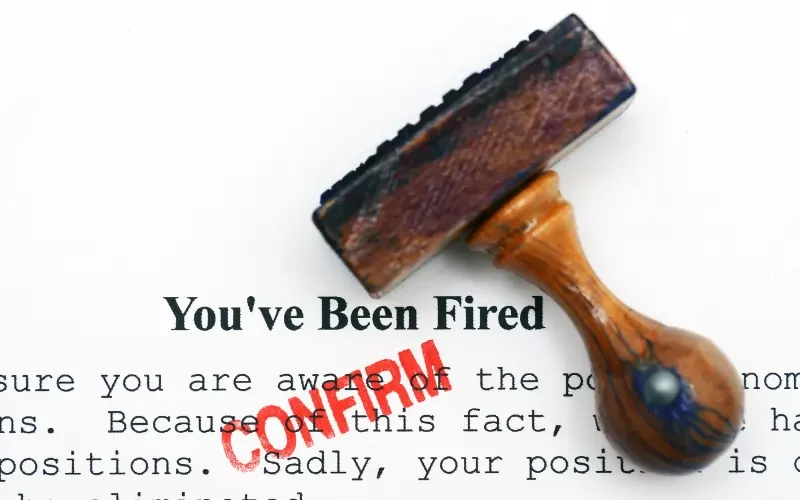
Ending a real estate relationship isn’t easy. You’ve put your trust in someone who isn’t delivering results, but you also have to know when the relationship isn’t beneficial any longer. Maybe the showings have slowed down, or maybe they just aren’t communicating like they should be.
Either way, you’re not feeling confident that your home is being represented in your best interest. Georgia homeowners like you deserve clarity and control at every stage of the selling process.
That’s why we’re going to look at what to do when your current real estate agent isn’t meeting expectations. We’ll go over some red flags and how to understand your rights under the contract, so you can make an informed, confident decision. Selling your home isn’t easy, but with the wrong agent, the market can get stickier than a Savannah summer.
When To Consider Firing Your Realtor (Common Reasons)
Not every real estate agent is the right fit, and you certainly want to avoid bad agents being involved in your real estate transactions. Some start strong but lose focus once the listing hits the market, while others struggle to communicate or push unrealistic pricing. Poor communication is one of the biggest warning signs. If your calls or texts go unanswered or updates are few and far between, that’s a big problem.
Another red flag is unprofessional behavior or even unethical practices. This can be anything from sharing private details by mistake to mishandling negotiations or disclosures, or showing hints of housing discrimination. Experiencing any of these is instant justification to walk away.
A bad real estate agent may ignore critical marketing opportunities or have little working knowledge of the local market. They may be disorganized during open houses or fail to arrange them at all. Maybe they’ve mixed up assessed value and market value just one too many times for your liking.
If your seller’s agent or listing agent isn’t showing your property in its best light or attracting the right buyers, it’s not a bad idea to reassess your business relationship.
Also, keep an eye out for dual agent arrangements. A dual agent agreement is where one agent assumes the roles of multiple agents and represents both the buyer and the seller. No matter how you look at it, you lose objectivity, and even a small issue like slow responses can be a deal breaker.
Georgia’s housing market is incredibly competitive, so you need someone committed to listening, following up, and fighting at every opportunity for the best deal to secure new clients.
Review Your Listing/Buyer Agreement And Legal Rights
Before you officially terminate your relationship with a real estate agent, always review the agent agreement you signed. It doesn’t matter if it’s just a listing agreement or a buyer’s agent agreement; it explains the obligations for both parties. Typically, it includes crucial details like when the contract expires, what happens during early termination, and if a termination fee applies. Getting a clear understanding of the termination conditions can help avoid a costly mistake or trigger lengthy disputes.
In Georgia, real estate contracts typically outline the agent’s duties, commission structure, and exclusivity terms. Some agreements also include a safety protection clause that may entitle the agent to a commission if a buyer they introduced ends up purchasing the property after the contract passes its expiration date. Reading these sections carefully now prevents confusion later.
During your review, if you encounter unclear or restrictive terms, always reach out to a legal professional. They can review the contract before you act, so you know how to act in your own best interest. Always keep a written record of communication and correspondence. This way, you can show some form of supporting evidence if there are disagreements.
Contacts will always specify how to provide written notice, which is usually the official termination communication preference. Other communications may not render the termination valid.
How To Legally Stop Working With Your Realtor
Firing your realtor can feel uncomfortable at best, but at worst, it can be intimidating and even overwhelming. After all, you’ve invested substantial time and trust in this individual and your relationship. The idea of ending it can come with heavy anxiety.
That said, by handling the process calmly and methodically, you can separate yourself from it more easily. Follow these steps closely, and you’ll turn this overwhelming task into a handful of actionable steps. Steps that culminate in you retaking control of the situation.
Step 1: Read The Contract And Note Cancellation Clauses
The very first thing you want to do is revisit your contract. Specifically, the section about contract termination. Professionally created contracts will always specify how to end the relationship. It will specify the amount of notice needed, and whether written documentation must be provided.
Pay attention to language that lays out an exclusivity agreement, or a safety protection clause. These can impact your ability to work with another agent. Knowing the rules outlined here will help prevent disputes and ensure you’re acting within the agreed-upon guardrails of the sales agreement.
Step 2: Raise Concerns In Writing And Request Corrective Action
Before cutting ties completely, document your concerns and give your agent a chance to address them. Send an email summarizing issues such as poor communication, weak marketing efforts, or missed follow-ups.
Be specific and professional, and ask for a plan to correct the problems within a set time frame. Keeping a paper trail creates supporting evidence if the matter escalates. Even if you’ve decided to end the relationship, written communication shows you made a fair attempt to resolve issues respectfully before moving forward to find a different agent.
Step 3: Ask For A Mutual Release Or Invoke Any Cure Period
If the situation doesn’t get any better, your next step should be asking for a mutual release. Many brokerages will agree to end the relationship if it’s obvious to them that continuing isn’t ideal for either party.
If the broker refuses, comb the contract for fine print about a “cure period”. This will allow you to terminate after written notice has been given. Just make sure all parties sign and date the needed releases to confirm that they agree on.
Step 4: Escalate To The Broker Or Use Mediation If Needed
If your agent refuses to release you or ignores your request, contact the managing broker. Brokers oversee all transactions within the same brokerage and are responsible for resolving disputes. If the issue still isn’t resolved, mediation through the local real estate board, Real Estate Commission, or the National Association of Realtors may be an option. Taking this step keeps the process professional and can save time, money, and frustration compared to pursuing a formal legal complaint.
Step 5: Obtain Written Confirmation And Keep Records
Once you’ve completed your termination of the agreement, contact your broker or agent and request written confirmation.
Keep easily accessible copies of every message, notice, and signed release for your records. These documents can protect you if a commission dispute pops up later on. By addressing each step on its own and keeping careful documentation and records, you’ll close it out cleanly and be free to partner with other agents.

Finding A Replacement Agent Or Alternative Selling Options
Now that you’re released from the contract with your previous agent, it’s time to find the right agent or option for moving forward. Make sure you take the time to find one who understands your goals and knows your local market like the back of their hand.
Look for an agent with references who will attest to their negotiation skills and marketing plan. Previous clients should readily recommend them. Communication is another big green flag, and an experienced agent will explain each step of the selling process and keep you updated at every opportunity.
If you don’t think you’re ready to sign with a new real estate agent, look at other options. You may have local cash buyers who can facilitate a direct sale. There may be a real estate company nearby that specializes in home buying. Finding your own buyer can be really attractive to sellers who want to avoid the hassle of listing and showing their houses.
Whether you choose to hire a new agent or look for prospective buyers yourself, make sure you’re informed and confident in your decision. Ask questions about fees at the closing table, contract length, and get important details about how they plan to market your home.
When the Georgia market heats up faster than the Fourth of July, working with the right partner makes all the difference in getting the best deal. Sellers in Fortson and Fort Mitchell know just how challenging the market can be sometimes.
Avoiding Risks & Protecting Yourself After Termination
Long after you fire your real estate agent, you should protect yourself from potential issues. Go over your previous agreement one more time to see if any clauses are still in effect, like safety protection clauses. These can cost you a commission if the clause is violated.
Try not to sign anything until you can positively confirm that your prior contract has fully expired. Overlapping contracts lead to commission disputes and other legal complications. If there’s any uncertainty at all, always ask a legal professional.
When you’re ready to move on, partnering with the right team can make selling your home buttery smooth. Assured Property Solutions helps Georgia homeowners connect with the right buyers, so deals can close fast, without a hitch.
